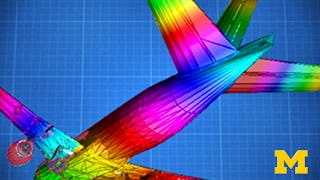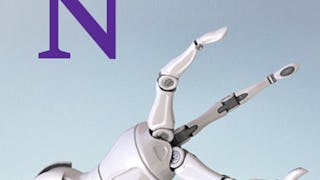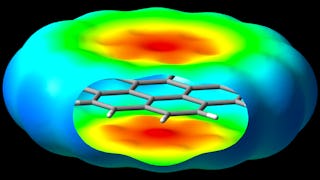Filter by
SubjectRequired
LanguageRequired
The language used throughout the course, in both instruction and assessments.
Learning ProductRequired
LevelRequired
DurationRequired
SkillsRequired
SubtitlesRequired
EducatorRequired
Find the Best Physics Course for Your Goals
 Status: Free Trial
Status: Free TrialUniversity of Colorado Boulder
Skills you'll gain: Semiconductors, Electrical Engineering, Electronic Systems, Electronic Components, Power Electronics, Physics, Electronics, Electronics Engineering, Applied Mathematics

University of Michigan
Skills you'll gain: Finite Element Methods, Engineering Analysis, Numerical Analysis, Mathematical Modeling, Advanced Mathematics, C++ (Programming Language), Open Source Technology
 Status: Free Trial
Status: Free TrialRice University
Skills you'll gain: Mechanics, Physics, Vibrations, Advanced Mathematics, Mathematical Modeling, Differential Equations, Calculus, Trigonometry, Applied Mathematics, Problem Solving
 Status: Free Trial
Status: Free TrialNorthwestern University
Skills you'll gain: Machine Controls, Control Systems, Mathematical Modeling, Mathematical Software, Automation Engineering, Simulation and Simulation Software, Engineering Calculations, Engineering, Mechanics, Mechanical Engineering, Artificial Intelligence, Torque (Physics), Vibrations, Applied Mathematics, Engineering Analysis, Automation, Numerical Analysis, Computational Logic, Virtual Environment, Robotic Process Automation

University of Manchester
Skills you'll gain: Chemistry, Physical Science, Physics, Laboratory Experience, Thermal Management, Simulation and Simulation Software, Experimentation, Molecular, Cellular, and Microbiology, Mathematical Modeling, Calculus

Korea Advanced Institute of Science and Technology(KAIST)
Skills you'll gain: Vibrations, Mechanics, Mechanical Engineering, Engineering Analysis, Control Systems, Engineering Calculations, Differential Equations, Mathematical Modeling, Applied Mathematics
 Status: Free Trial
Status: Free TrialUniversity of Colorado Boulder
Skills you'll gain: Quantitative Research, Mechanics, Mathematical Software, Engineering Analysis, Mechanical Engineering, Numerical Analysis, Chemistry, Physics, Mathematical Modeling, Differential Equations
 Status: Free Trial
Status: Free TrialRice University
Skills you'll gain: Physics, Mechanics, Physical Science, Trigonometry, Mathematical Modeling, Advanced Mathematics, Linear Algebra, Differential Equations, Applied Mathematics, Integral Calculus, Problem Solving

The University of Edinburgh
Skills you'll gain: Physics, Physical Science, Science and Research, Engineering, Scientific, and Technical Instruments, Image Analysis, Laboratory Research, Computer Displays, Technical Communication, Data Storage, Data Analysis Software

Shanghai Jiao Tong University
Skills you'll gain: Engineering, Chemistry, Physics, Manufacturing Processes, Physical Science, Semiconductors, Thermal Management, Mechanics, Failure Analysis

The Hong Kong University of Science and Technology
Skills you'll gain: Physics, Advanced Mathematics, Simulations, Engineering Calculations, Mechanics, Mathematical Modeling, Calculus, Differential Equations, Physical Science, Information Architecture
 Status: Free Trial
Status: Free TrialRice University
Skills you'll gain: Torque (Physics), Physics, Electrical Engineering, Basic Electrical Systems, Applied Mathematics, Engineering Calculations, Mechanics, Calculus, Engineering Analysis, Trigonometry, Problem Solving
Searches related to physics
In summary, here are 10 of our most popular physics courses
- Semiconductor Devices: University of Colorado Boulder
- The Finite Element Method for Problems in Physics: University of Michigan
- Physics of Oscillators and Waves: Rice University
- Modern Robotics: Mechanics, Planning, and Control: Northwestern University
- Introduction to Physical Chemistry: University of Manchester
- Introduction to Basic Vibrations: Korea Advanced Institute of Science and Technology(KAIST)
- Quantum Mechanics: University of Colorado Boulder
- Physics of Light and Materials: Rice University
- AstroTech: The Science and Technology behind Astronomical Discovery: The University of Edinburgh
- Fundamentals of Materials Science: Shanghai Jiao Tong University










